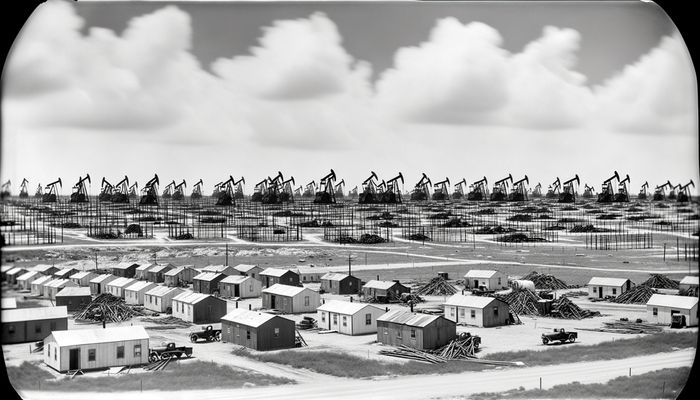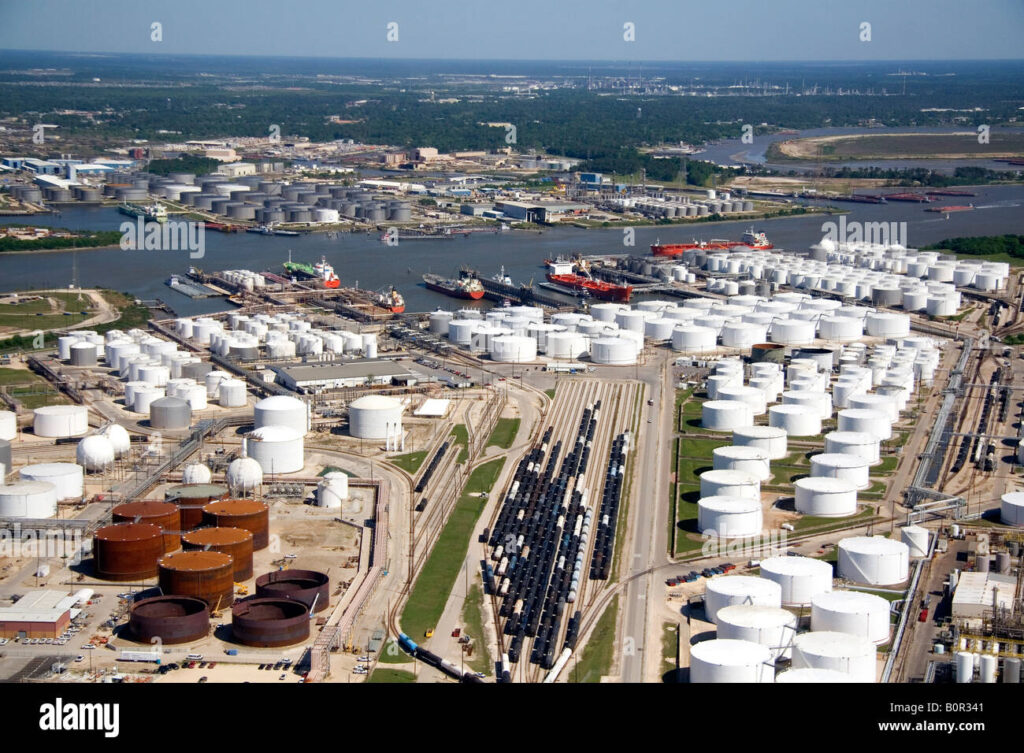
The Texas oil boom forever changed the economic and social landscape of Houston. What was once a modest trading center rapidly became a hub of industrial growth, innovation, and global trade. This article explores how Houston’s transformation from a quiet town to an economic powerhouse was fueled by the discovery of oil.
Early Discoveries: The Beginning of the Oil Boom
The first major discovery of oil in Texas happened in 1901 at Spindletop, a well near Beaumont. This gusher marked the start of a new era for the region. Although Houston wasn’t the center of that initial discovery, it quickly positioned itself as a key player in the oil industry.
Investors and oilmen flocked to Houston, drawn by the city’s proximity to the Gulf Coast and its developing transportation networks. Early companies such as Humble Oil (now ExxonMobil) were founded in Houston, setting the stage for the city’s economic ascent.

The Birth of Houston’s Oil Companies
The 1910s and 1920s saw the formation of major oil companies in Houston. Humble Oil, Gulf Oil, and Texaco became cornerstones of the city’s economy, creating jobs and attracting skilled laborers from across the country.
Houston’s central location within Texas and access to the Gulf of Mexico provided a strategic advantage, allowing oil companies to export their products globally. As refineries and petrochemical plants developed along the Houston Ship Channel, the city’s economic foundation grew even stronger.

Infrastructure Growth and the Rise of the Houston Ship Channel
The development of the Houston Ship Channel was a critical factor in the city’s oil-fueled expansion. Completed in 1914, this waterway allowed large tankers and ships to transport oil efficiently, further integrating Houston into the global energy market.
The Ship Channel quickly became home to numerous oil refineries and chemical plants. This infrastructure laid the groundwork for Houston to evolve into an industrial hub that attracted foreign investments and created thousands of jobs for locals.
Impact on the Local Economy: Jobs and Innovation
The oil boom didn’t just boost the energy sector – it transformed the entire Houston economy. Employment surged as industries like construction, finance, and real estate thrived alongside oil production.
The city also became a center for research and innovation, with companies investing in new drilling technologies and petrochemical developments. Institutions like Rice University benefited from oil wealth, which supported scientific research and higher education, further solidifying Houston’s reputation as a knowledge-based economy.
Global Influence and Expansion
By the mid-20th century, Houston was firmly established as a leader in global oil production. The city hosted headquarters for numerous multinational oil companies and became a frequent destination for international business delegations.
Events such as World Petroleum Congresses and energy trade shows highlighted Houston’s importance on the world stage. As the city grew, so did its influence in shaping energy policies and market trends.
Challenges and Resilience: Surviving Oil Busts
Houston’s reliance on the oil industry made the city vulnerable to market fluctuations. During the oil bust of the 1980s, Houston experienced an economic downturn. Companies laid off thousands of workers, and housing markets struggled.
However, the city’s resilience shined through. Houston diversified its economy by investing in other sectors like healthcare, finance, and technology. These efforts allowed the city to weather future downturns and emerge stronger than before.
The Lasting Legacy of the Oil Boom
Today, Houston remains synonymous with the energy industry, but it has also diversified into sectors such as healthcare, aerospace, and technology. The legacy of the oil boom is visible throughout the city – in its sprawling infrastructure, world-class museums funded by oil wealth, and the thriving business environment that attracts entrepreneurs and innovators.
Houston’s transformation from a modest town into an economic powerhouse is a testament to the city’s adaptability and determination. The oil boom may have sparked this journey, but it was Houston’s vision and resilience that ensured its lasting success.